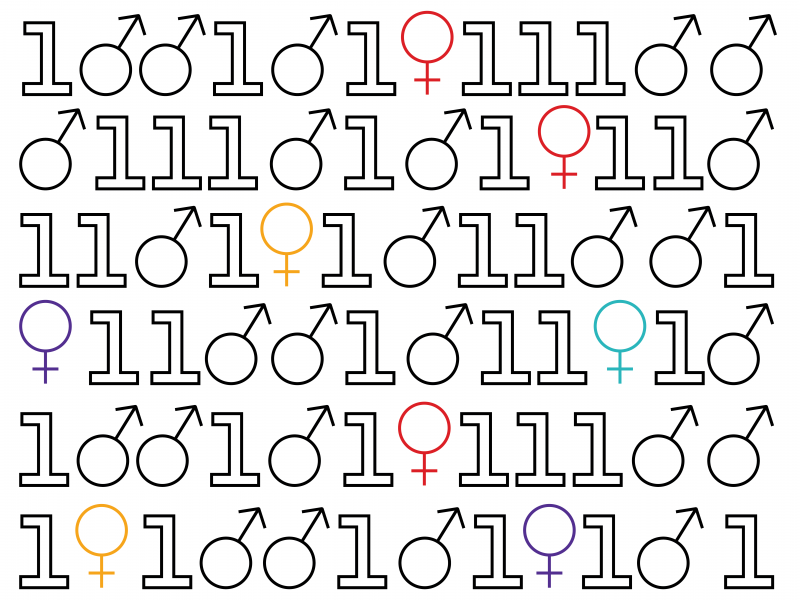To celebrate women day, I write this story from charming South Tyrol and the city where a local politician was recently forced to resign due to a WhatsApp invitation to rape a sexy female DJ. Women empowerment has made a significant regression in Italy since Berlusconi times, with an increasing sexualisation started by mass media and then invading all public spheres including politics. The most powerful force in the government at the moment started their controversial career screaming "ce l'ho duro" (literally "I am horny") to denote their ambition and capabilities.
This story is also written from the perspective of a woman working in computer science, which is probably the most masculine environment a person may think of. To put things into perspective, there are slightly more women in the British Army, than female students at the University of Lincoln (+3%).
Why is that? Why are so little women interested in the field of computer science? What are the consequences of this inequality?

These are important questions if we agree with Terry Winograd when he writes "In designing new systems and applications, we are not simply providing better tools for working with objects in a previously existing world. We are creating new worlds. Computer systems and software are becoming media for the creation of virtualities: the worlds in which users of the software perceive, act, and respond to experiences.".
In this story, I analyse professional stereotypes from the perspective of a class of first-year communication science students of the University of Bozen-Bolzano. The group was composed of 23 females and four males (a complete change of environment for a computer science professor). I have asked these young people to describe the typical computer science student and the average communication science student in terms of their gender, education, personality, interest and skills. What emerged from their narrative was a concept of dualism reflecting opposite personalities, interests and abilities.
When asked to imagine the gender of the typical computer science student, 16 participants indicated a male and 11 of them declared gender to be irrelevant to the stereotype. None of them said it could be a female student. Conversely, when asked to imagine the gender of a typical communication science student, the majority of them (17) declared it to be irrelevant, eight people denoted a female and two people a male.
The most typical personality trait attributed to the computer science student was introvert, followed by lack of social skills and interest in other people. These students were described as smart, quick and bright with an exclusive interest in technology, computer science, math and related skills over people. They were the "hackers,” “wizards,” “cowboys or “gurus" described in the illuminating book "The computer boys take over" by historian Nathan L. Ensmenger.
The profile of communication science students was strikingly different almost oppositional. They were extrovert, open, loved to travel and meet people. They enjoyed all aspects of communication, from language to cultures, from politics to parties. They had excellent public speaking skills which they used to inform, influence and entertain.
This dichotomy made me reflect. I wished that the design of our future could benefit from both talents which can be fostered in new University programmes merging masculine and feminine traits, covering both hard and soft skills. A humanistic vision can be the solution to the gender gap in computer science and provide new spaces and metaphors for future words and societal possibilities.
Have a good women's day!
Acknowledgement: the picture was kindly created by the Waag in occasion of https://commonfare.net/en/stories/gender-story-1-mind-the-gap-at-the-waag